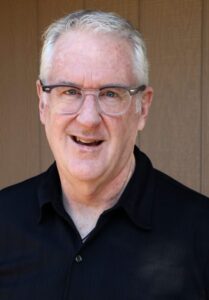
The Cycle of Religious Disillusionment and Hope

Americans are navigating a cycle of disillusionment with religion, and more specifically, the Christian church. But new research shows why it’s important to frame this “decline” as a cyclical journey, rather than a linear trend. More and more, the people in your community are re-thinking the cost of abandoning their “treasure buried in the field”—the costly pearl they thought they could do without now seems a bit more luminous in retrospect.
In her New York Times article “America Wants a God,” reporter Lauren Jackson says: “Most people are wary of the government, the future and even each other, but they still believe in astonishing possibilities… The country seems to be acknowledging [a] widespread spiritual hunger. America’s secularization is on pause, people have stopped leaving churches, and religion is taking a more prominent role in public life…”
The underlying forces that are fueling this nascent resurgence are diverse and (sometimes) a bit counterintuitive. Jackson points to five factors that are creating momentum…
- Isolation and Fear – The promise of social media is relational connection, but it’s clear that the opposite effect is true. Americans say they are more isolated, on the whole, than any other era in our history—and the younger you are, the more lonely you are. The pandemic only exacerbated that trend. But churches that were, at one time, the prevailing hub for community for so many, are subtly reclaiming their attractional mojo. Jackson writes: “Researchers say the pandemic and the country’s limited social safety nets have inclined people to stick with (or even turn to) religion for support.”
- Dissatisfaction With the Alternatives – For years we’ve been told that many who are leaving the church are finding close, satisfying community in a wide array of secular options. I’ve written about this myself… In my book Editing Jesus, I quote the Atlantic’s Derek Thompson: “Those, like me, who have largely rejected this package deal [the church], often find themselves shopping à la carte for meaning, community, and routine to fill a faith-shaped void. Their politics is a religion. Their work is a religion. Their spin class is a church. And not looking at their phone for several consecutive hours is a Sabbath.” But, it turns out, these promising alternatives to church also leave a lot to be desired. Jackson writes: “Many Americans are dissatisfied with the alternatives to religion. They feel an existential malaise, and they’re looking for help. People want stronger communities, more meaningful rituals and spaces to express their spirituality. They’re also longing to have richer, more nuanced conversations about belief.”
- Experiencing the Benefits – While there is much about the church experience that remains off-putting to many, the doomsayers have overlooked some of the powerful and immersive benefits of belonging to a church community. Ryan Burge, the Eastern Illinois associate professor of political science and a leading researcher on religious trends, says: “There is overwhelming empirical support for the value of being at a house of worship on a regular basis on all kinds of metrics—mental health, physical health, having more friends, being less lonely.”
- The Cost of Losing Your Religion – The downward slide in church participation has plateaued, for now, and that’s likely because people are now years into their post-church life and the deficits in their life are starting to become palpable. Jackson writes: “Many ‘nones’—people who have no religious affiliation—that I spoke to seem to have a dawning recognition that, in leaving faith, they threw ‘the baby out with the baptismal water,’ as my Opinion colleague Michelle Cottle said. Some are even converting to a religion. Depressed and doomscrolling during the pandemic, Matt McDonough, a 39-year-old in Minnesota, said he found a ‘profound’ community in a men’s Bible study. ‘I got baptized as an adult. My mental and physical health improved dramatically.’”
- A Longing that Won’t Go Away – Americans still wrestle with the fundamental questions of life—questions that have always driven people to churches, where those big questions are always on the menu. Churches that adopt a “Stockdale Paradox” culture—embracing both an unflinching view of real life while refusing to let go of a prevailing hope in Jesus—are a magnet for people who long for relaxed, non-performative, and authentic environments. Jackson writes: “[The] data reveals that finding a way forward may require acknowledging that Americans want to wrestle with hard questions about how to live. They’re looking to heady concepts—confession, atonement, forgiveness and sacrifice—for answers. In short, they’re looking to believe in something.”
Just For You
In Vibrant Faith’s 4th-Soil Parenting Project, we asked one of our ministry leadership coaches to create a series of video conversations that are by dads, for dads. We call this series Real Talk with Dads, and the churches in our project are using them before, during, and after Father’s Day to highlight the stories, advice, and wisdom of dads. We’d like to offer two of these short videos—each one with a single question to ponder at the end—to you, free of charge. Just click below to check them out and download. You can send them out to dads in your church via email, text, or on your website. Enjoy…
• Dads Got You

Rick Lawrence is Executive Director of Vibrant Faith—he created the new curriculum Following Jesus. He’s editor of the Jesus-Centered Bible and author of 40 books, including his new release Editing Jesus: Confronting the Distorted Faith of the American Church, The Suicide Solution, The Jesus-Centered Life and Jesus-Centered Daily. He hosts the podcast Paying Ridiculous Attention to Jesus.




